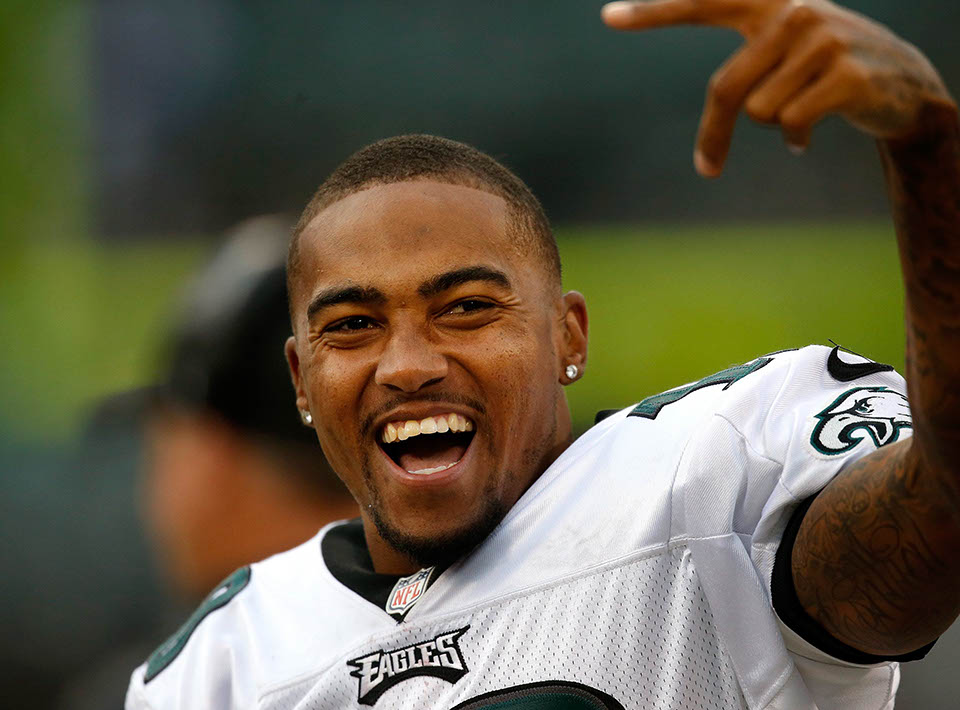Pro-Bowl player cut from Philadelphia team for alleged ties with gangs

By Patrick Cochran
The Guardsman
It’s been a tough few weeks for a sports fan from Philadelphia. The Philadelphia Eagles cut star wide receiver DeSean Jackson shortly after a story surfaced on NJ.com alleging Jackson had connections to the Los Angeles based Crips street gang.
The article, titled “DeSean Jackson’s gang connections troubling to Eagles” makes for a great read. The writers meticulously contacted sources in the Los Angeles Police Department to get background information for the story.
There are many troubling pieces of information, including that Jackson was questioned in connection with the gang connected December 2010 murder of 14-year-old Taburi Watson.
Police were quick to indicate that Jackson was in no way involved in the actual shooting of Watson, but that instead “acting on unspecified information Jackson might have knowledge of Shakir’s activities on the night of Watson’s murder,” LAPD detective Eric Crossen told NJ.com.
After reading the article it is hard to definitely conclude what exactly Jackson was up to. It mentions that he started a rap label, Jaccpot Records, and that many gang affiliated people hang around the studio.
The article also alleges that Jackson specifically spelled Jackpot with the double C instead of the CK because CK is gang lingo that stands for “Crip Killer”, a slogan used by the Crips’ arch rival, the Bloods gang.
To make matters worse for Jackson, there is video evidence of him throwing what looks like gang signs in a game versus the Washington Redskins last year, who oddly enough signed Jackson to a three year $24 million ($16 million guaranteed) contract April 2 after Jackson was cut from the Eagles.
The Eagles argument was that they would rather get rid of Jackson and his massive $48 million contract, before something bad happened to him off the field, despite Jackson having one of his best seasons ever with 1332 receiving yards and nine touchdowns.
NFL teams have been very careful to monitor the activities of their players ever since the Aaron Hernandez (New England Patriots tight end) murder last offseason.
At the end of the day players are an investment. When you are allocating millions of dollars toward a single player’s contract you want to make sure he isn’t involved with any unsavory characters off the field.
But on the flip side, these are the people Jackson grew up with.
Growing up in inner-city Long Beach, Jackson was bound to know some people who would grow up to be in trouble. This is not uncommon. I am sure a large percentage of professional athletes grew up with friends or family that have had legal troubles.
Most athletes don’t completely cut ties with the people they grow up with. They instead grow wise and old enough to keep the troublesome ones at a safe distance. This is what DeSean should of done.
On April 4, ESPN had an interview segment where Stephen A. Smith asked DeSean Jackson about his association with gangs.
Jackson was candid in his response to Smith. Jackson said gangs were a product of the inner city Long Beach environment.
Showing smart media savviness when asked by Smith if he still associated with gang members, Jackson responded “Not if they’re doing negative things.”
Many athletes have had the “bad boy” persona and have been able to survive.
My favorite childhood athlete, Allen Iverson, was constantly called a “thug” by the media and many people thought he would end his career behind bars.
People were scared of the little shooting guard with corn rows, thinking he was a menace to society. Iverson certainly wasn’t perfect, running into minor legal and financial problems during and after his career. At the same time Iverson didn’t end up in an incarcerated state like many people thought he would.
The sports watching public has grown a lot since the initial hysteria over Iverson in the 1990s, but the DeSean Jackson incident shows that many people still panic whenever they hear our athletes are alleged to be “thugs”.
Simply put, many in America are afraid of scary black men, even if they are a Pro Bowl wide receiver who runs anti-bullying outreach efforts and went to college at UC Berkeley.
